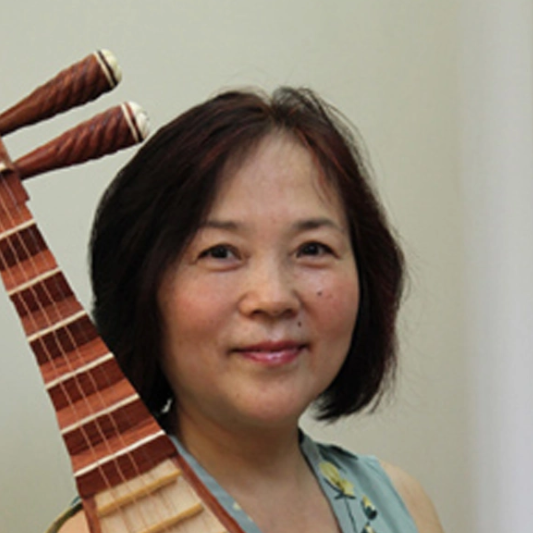Hao Yifan

Hao Yifan, the third-generation descendant of the Wang School of Pipa, is a professor and postgraduate tutor of the Folk Music Department of the Central Conservatory of Music.
Born in 1956 in a teacher's family in Baotou, Inner Mongolia.
In 1970, he began to learn Pipa under the tutelage of Li Fengtong from the Baotou Song and Dance Troupe in Inner Mongolia.
In 1972, he was admitted to the Inner Mongolia Radio and Television Art Troupe.
In 1977, he was admitted to the Department of Folk Music of the Central Conservatory of Music for an undergraduate degree, under the tutelage of Li Guangzu (son of Li Tingsong, a representative of the Wang School), Wang Fandi, Lin Shicheng and other professors. After graduating in 1982, he stayed in the school to teach until now.
Hao Yifan's performance is skillful and smooth, the music level is delicate, the momentum is thrilling, and he is quite popular. As a pipa concerto, "The Overlord Unleashes Armor" has high difficulty and rich performance skills, as well as varied and complex musical effects. Hao Yifan's teacher Li Guangzu premiered this work, and now, at the age of 60, Hao Yifan is the head of the "Wang School" pipa. That night, she successfully succeeded her teacher Li Guangzu and completed the concerto in excellent condition, which received long applause and cheers from the audience.
Similar artist
Involving musical instruments
Involved portfolio
Involved news
Popular artists
- 01 Zhang Xiuyan
- 02 Chen Tao
- 03 Li Muliang
- 04 Zhu Changyao
- 05 Zhang Gaoxiang
 渝公网安备 50010702504639号
渝公网安备 50010702504639号